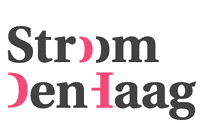Àngels Miralda Tena, fotograaf: onbekend
Studio visits Miralda Tena and Mateo Chacón Pino: 7 and 8 July
On Thursday 7 July and Friday 8 July, 2022, Àngels Miralda Tena and Mateo Chacón Pino, guest curators of a 2023 group exhibition at the recently opened RADIUS CCA, will each make studio visits to artists in The Hague. About their common areas of interest, they write the following:
"Convergences in our curatorial practices consist of imagining the body in flux as metaphor for society. By using strategies of commoning and integrating biological processes in real time we develop projects in close collaboration with participating artists, activists, and researchers in workshop formats. We promote alternative pedagogies and various forms of knowledge as a core value. We are currently working on the concept of a new exhibition to take place in the Netherlands in 2023 for which we are investigating social relationships from a bacterial perspective. We are pursuing interests in the history of science, decolonial practices, artistic research, political epistemologies, self-anthropologies, etc. Aside from traditional artistic media we also look for performative and time-based practices, as well as new proposals for how education and science can work alongside exhibition formats."
Sign up
If you are interested in a studio visit by Àngels or Mateo, you can let us know Sunday, June 12, 2022. The responses received, together with any suggestions from Stroom, will be presented to the curators. From the list they will make a choice on the basis of which the visit program will be compiled. You will receive a message shortly after the application deadline if you have been selected by the curator for a studio visit.
Àngels Miralda Tena describes her curatorial practice as a secret politics of materiality with the belief that materials contain embedded meanings, relating to global chains of extraction, trade, and industry. Her recent exhibitions have drawn on art historical research into Arte Povera, neo-materialisms, and the roots of Installation Art to create parallels between artists' materials and planetary phenomena. She has realised residencies and new productions in volcanic craters and sulphuric pits with artists Regina de Miguel and Paul Rosero Contreras. Based on observations of how biotechnology interacts with our world as well as our own bodies in changing and sometimes violent manners, she has imagined speculative sculptural futures with artists Julia Varela and Andrej Škufca. Her projects with Débora Delmar have addressed matter in its consumer form as a market commodity with economic and cultural repercussions. She has organized exhibitions at the Tallinn Art Hall, MGLC - International Centre for Graphic Arts (Ljubljana), De Appel (Amsterdam), Galerija Miroslav Kraljevic (Zagreb), the Museum of Contemporary Art of Chile (Santiago), Museu de Angra do Heroísmo (Terceira - Azores), and the Latvian Centre for Contemporary Art (Riga). Miralda regularly publishes her writing for Critics' Picks at Artforum and is the current Mondriaan curator at airWG (Amsterdam).
Mateo Chacón Pino is a Colombian-Swiss art historian, curator, and writer based in Kassel, Germany. He is a research assistant at the documenta Institut and University of Kassel at the Chair for Art & Society, Prof. Dr. Liliana Gómez. In his doctoral thesis he inquires the epistemological challenges history of art faces in the Anthropocene from an anthropological perspective of allochronism and coevalness between the discipline and environmental change. In 2021 he graduated in MA History of Art from the University of Zurich with a thesis on the role of governmental art funding in the understanding of art, supervised by Prof. Dr. Bärbel Küster. He participated 2018 in The Curatorial and Artistic Thing at sixtyeight art institute, Copenhagen, and 2016-2017 in the Curatorial Programme at De Appel, Amsterdam. He has curated
Over RADIUS CCA
RADIUS is a center for contemporary art and ecology. We are located in the city of Delft and stationed in the pump house and water basin belonging to the Delft water tower, a historical monument and architectural landmark. With five hundred square meters of subterranean exhibition space, our program is dedicated to the intersection of art and science, with special emphasis on climate, ecology and the living environment. The name RADIUS is based on the circular geometry of our exhibition space. In a more poetic sense, the radius of each circle in our program serves to jointly develop a more grounded understanding of our shared living environment.


